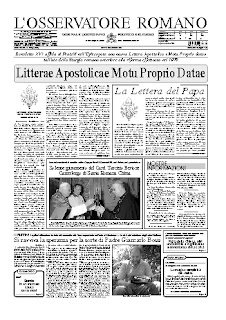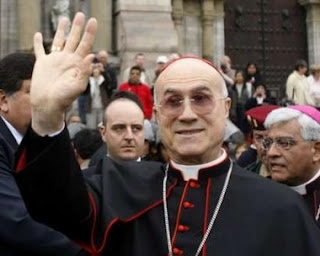The following text is a translation from French of a text by Father Roger-Thomas Calmel, O.P. (1914 -1975). It is taken from his beautiful book: Les Mystères du Royaume de la Grâce - The Mysteries of the Kingdom of Grace.
We have to consider this text in its context, a few decades ago, but it is still accurate. Modernism is still present within the Church and it might be good to know it well in order to fight it better. May this text help us in this task, for the Glory of Our God and the exaltation of the Catholic Church.
May Saint Michael the Archangel protect and defend us.
Father Laurent Demets, FSSP The City of God ( Manuscrit du XVe siècle )
The City of God ( Manuscrit du XVe siècle )
For many reasons, the Church of God can be defined as the city of Christian grace. The first reason is that the author and dispenser of all graces, our Lord Jesus Christ, remains present in His Church through the Eucharist. He is there by virtue of presence neither diminished nor attenuated. Jesus in person dwells in His Church as real as He is present at the right hand of the Father, as immolated as at Calvary, though His presence and immolation are sacramentally realized. The author of grace is forever present in His Church and He constantly affects her by sacramental contact and fills her with grace. He does this through His ministers by virtue of supernatural hierarchical powers, so that the Church is established both as a veritable city and a holy city.
The Church is also a city of grace in the sense that the proper and reserved function of this society belong to the supernatural order. The indestructible powers conferred to her hierarchy, assure with the indefectible assistance of the Holy Ghost, two great kinds of functions. First, it preserves intact and makes explicit the definitive revelation given by our Lord for our salvation, for our life according to grace. Then it confers the sacraments, which are the effective signs of grace and which conform us to Jesus Christ. Three of them even mark us by a character [1].
On a third point of view, the Church can also be called the city of Christian grace, by virtue of charity which is constantly spread in her heart, especially by means of the sacraments. The Church is the temple of the Holy Ghost who dwells in her by the inhabitation of grace and love.
Thus, whether we consider the Church as mediator of divine truth and life, or as the dwelling-place of God, She is, in these two prospects, an intrinsically supernatural mystery. She comes as a hierarchical and ordered society which transcends the earthly societies and the homelands here below. She transcends them, but she also purifies and changes them. She desires to waken them from a temporal Christian order and to elevate them to the level of Christian societies or Christendom.
It has always been important and certainly today more than ever in this time of darkness when modernism acts to dissolve the Church from the inside, that we must understand that the two essential grandeurs of the Church are inseparable. Here below, being home of God and mediator of salvation are necessarily two inseparable things. Undoubtedly, when the Church will have joined with her Spouse in the beatific vision, when She will have entirely passed from this world to the Father (Jn 13,1), when she will become entirely glorious, then She will only be the triumphant Jerusalem and will cease from her role of mediation. How would she still be mediator of truth since we will see face to face? How would she still be mediator of Divine life since we will possess it without needing sacramental signs? How would she still be mediator for a propitiatory and imploring sacrifice since there will be no more sin to be expiated and since we will be consumed in the purest love? The grandeur that makes the Church the home of God lasts for all eternity. The grandeur that makes the Church mediator of salvation lasts only as long as time. Nevertheless, the fact is that, in this present condition, until the end of the earthly pilgrimage of the children of Adam and until the achievement of the human generations, the grandeur of the mystical life and of holiness and the real Eucharistic presence, in other words, the grandeur of the Church as home of God, totally clings to the grandeur of mediator and is totally sustained by this.
All the efforts of modernism consist in corroding the grandeur of mediation. Let us say of hierarchical mediation thinking that it would erode and destroy at the same time the grandeur of holiness, and consequently would ruin the Church as the dwelling-place of God. But in truth, it will never destroy neither one nor the other. It will never destroy the Church as the dwelling-place of God, because first, its fury and its artifice will remain impotent against the Church as mediator of salvation.
I spoke about the artifice of modernism. Let us be more precise. It is not a common and ordinary artifice. It is a satanic artifice. It comes in a slanted way that we do not expect. Modernism does not attack on a frontline. Modernism does not deny audibly that the Church is mediator of truth and grace and that she is endowed with hierarchical powers. But modernism creeps into the place where some means of ecclesiastical institution, which can be changed in a certain measure, meets the deposit of Divine institution, of which they are the indispensable instruments. For example, modernism denies that the Church is the infallible depositary and the faithful messenger of Christ’s revelation. But this assertion is not its principal weapon. It rather finds a subversive method and it is indeed crafty to silence and smoothly relativize the formulas and anathematize that which is nothing else in fact than the humble human condition of a definite language and a precise thought. Insofar as it succeeds, there is obviously no more need to deny to the Church the power to dispense the supernatural truth; it is useless to judge her on this subject because the elemental means that she has in order to do this has been removed.
Modernism uses the same process regarding the hierarchical powers. It certainly does not hesitate to fight the Roman primacy or the apostolic succession of the Bishops, but it rather prefers from afar to neutralize the hierarchical powers. In doing so, it tries to impede the means, the humble conditions instituted by the Church, which allows their just and legitimate applications. Here, the way of modernism is democratization, named collegiality. It is a revolutionary and Rousseauist[2] system of meetings, assemblies and votes, an entire structure of commissions that reduce considerably the Roman primacy or the jurisdiction of the Bishop and make it vain.
The same method is used for the Mass and the Sacraments. This method consists in squeezing between what is from Divine institution and what is from ecclesiastical institution. If the method would succeed, sacraments would cease to be effective signs of grace and would become heretical and void ceremonies. The Mass would cease to be in truth the Holy Sacrifice and would become just a religious representation more or less worthy. We can see very well how this method works. Under the pretext that the rubrics and the formularies, the rites and the prayers which enclose and solemnize the sacramental form are not settled by the Gospel and under the pretext that they have known some variations throughout the centuries, they pretend that they are merely human. Then, they make them multiform, adaptable and indefinitely scalable according to the pastoral needs. Thus, the sacramental form, deprived of its humble protector elements required by human condition, is seriously in danger of becoming operative and invalid.
This process of destruction is very much more dangerous than a loyal contestation. It can be spread among the pastors and the faithful before they even realize it. It can conceal with an appearance of reason since the element it wants to dissolve is not divinely instituted. It is certain the New Testament does not speak about the organization of the Church in dioceses, about the Roman canon in Latin, about the regulation of the rite of communion or about the dogmatic formulas of Nicaea, Chalcedon and Trent. But if you accept this, if you hold that they can be the object of some conciliar manipulations and that there is nothing to say about it since the majority accepts it, the world waits for this and the historical progress requires it; if you think in such a way and act consequently, then you destroy the Church’s function as mediator. If this goal could be reached, the Church would cease to be the temple of God. How would God live by theological charity in a Church whose Faith would be uncertain, the power of Order doubtful and the Eucharist heretical? And how would the power of Order be assured if the orthodox Faith that commands the rite of Ordination would falter? How would the Eucharist not become heretical if it were celebrated for a long time according to a formulary and rites in which the orthodoxy is much less expressed so that the Heretics can make it compatible for their ceremonies? If the Church were to give-in to the modernist attempts which slant attacks on her function of mediation, she would become the kingdom of absence: no more charity, because charity requires faith and sacraments of faith; no more Eucharistic presence and no more Eucharistic sacrifice because the form of this sacrament, as the form of all the sacraments, needs to be held, defended, solemnized and glorified by some appropriate formularies and some decent and fixed ceremonies.
The modernist argument for modernism is this: that which is in the Church from ecclesiastical institution must be said, to be merely and only human. The conclusion that we must draw is that it can become anything in order to meet the requests of history. But speaking like this, is first forgetting that even in a profane city, the human and earthly elements which constitute the city – the human and earthly elements being the political common good and the organization of powers – cannot become anything and cannot be carried off by any historical movement. It is forgetting that there is a nature of city and that the kind of city created by the Revolution of 1789 and carried on by Communism to its fulfillment is a kind of city against nature.
But the most certain grave error on which modernism is founded, even though it does not say it, is this: denying that what it considers as merely human and earthly in the Holy Church cannot be resolved in the human and earthly realm. On the contrary, the human and earthly order is connected to an intrinsically supernatural order of things. It is a means chosen by the authority assisted by the Holy Ghost for the communication of the truth and of the life which are not from man but from God. And the fact is that the Church cannot change this means neither make it evolved ad nutum. The reason is that, this means, which allows us to pass on the celestial goods has to conform to this very precise and particular end. Thus, the Church cannot inflect her government in some organisms similar to those of occult societies because, beyond the own iniquity of such organisms, they are incompatible with the supernatural powers that the Lord gave her. The Church cannot disregard the definitions and the anathemas. She cannot adopt the floating and evading language which is so-called pastoral from the Second Vatican Council, because this language is first an offense to the human mind and then it cannot be homogenous to the Revelation. The Church cannot content herself with indeterminate and adaptable rites, because they put the Sacraments that she received from her Spouse in peril.
The fact is that everything apart from sin in the Church, belongs to the Church which is a city of a supernatural order. It does not mean that, in the area of the ecclesiastical institution, everything is assisted by the Holy Ghost on an equal level. Here, unlike what has been directly instituted by the Lord, there is place for something fallible, variable, modifiable and dismissible. Wanting to introduce immutability here would be indeed a kind of simplistic attitude. For example, the state of consecrated virginity that comes from the Gospel itself and has been inaugurated by Our Lady cannot be changed nor abolished. But it is also impossible that the virgins of Christ literally follow the same regular discipline at any time. We also know that, what is from ecclesiastical origin in the Church is a privileged place for impure concoctions, for too human combination and also and maybe firstly for a certain ecclesiastical omnipotence, which is clericalism. We can think about the despotic manner used by certain priests to impose posture during Mass, under the pretext that the Liturgy requires a liturgical attitude. And what about the tyranny of certain bishops, even before it has been inflated and exasperated by the collegiality? It is true that they often imagine that any kind of disobedience to their orders or their warnings constitutes necessarily in itself a sin.
These remarks about what, in the Church, is from ecclesiastical origin and about the human elements which can sometimes make it void, would miss their goals if they came to distract our attention from this primary truth: in the city of God, even the elements of ecclesiastical origin – unless they are illegitimate, even with the contrary appearances, which is an easy thing in this period of modernist infiltration – belong to the city of God. For example, regarding the Sacraments, it is not only the matter and the form that are connected to the order of supernatural things, but also, and on different levels, the formularies and the rubrics.
If you do not see this; if you consider, not a distinction but a heterogeneity between the data of the Scripture concerning the Church and the developments introduced by the Church in order to remain faithful to these data; if you consider on one side the divine element and on the other side the merely human element; if you esteem that the text of the Scripture is immutable while the definitions of Chalcedon or Trent are void and not for our time, or if you think that the text of the Canon of the Mass, because it has been established by the Church, can be changed to correspond to the demands of history and of ecumenism, and that only the words of the Consecration cannot be changed, because they come from the Lord; if you have all these conceptions, then you cannot perceive the transcendence of the Church’s mystery. The Church, considered as a whole, would cease being a mystery. She would not be recognized as a city really supernatural. She would not be any more the Holy Church.
The faith of the Church, and also her hope, her sacraments, her worship and her magisterium, her powers of order and of jurisdiction, and finally her states of life will not continue in the eternal Homeland. Only her charity will eternally shine. But this eternal charity which will derive from the vision of the Three Divine persons has to be now formed and nourished in faith and hope, by the teaching of the magisterium and by the celebration of the cult – above all, by the celebration of the Holy Sacrifice – and within determined states of life. And the teaching of the magisterium, the celebration of the sacraments and the fidelity in the states of life are kept and supported by the means of ecclesiastical institutions which are indispensable for this.
This is the reason why these means should not be considered as extrinsic to the supernatural mystery of the Church, like something simply earthly and absolutely incidental, merely human, modifiable according to the desire of the collegialities and the commissions or according to some chimeras or such or such hierarch. This is why we will do everything we can in order to impede the perversion and the destruction of these means which are constantly attacked by revolutionary tactics since Vatican II. In our resistance, we are sure to be faithful to the Church, because she wants to preserve the means that are necessary to maintain her function of mediation. She wants this in order to live in charity, so that Our Lord can dwell in her by the inhabitation of love and by the Eucharistic presence.
The Virgin, Mother of God, the Virgin of the Stabat, of the Pentecost and of the miraculous intervention throughout history, the Virgin Mary coredemptrix will keep safe in the Holy Church not only the data instituted by the Lord but also the means from ecclesiastical origin by which the Spouse of Christ will unswervingly stand in the middle of men, both as mediator of salvation and home where God dwells, until the eternal day of the Parousia of our Beloved Savior.
[1] They are Baptism, Confirmation and Holy Order.
[2] In reference to Jean-Jacques Rousseau, the Swiss philosopher considered as a father of the French Revolution.












